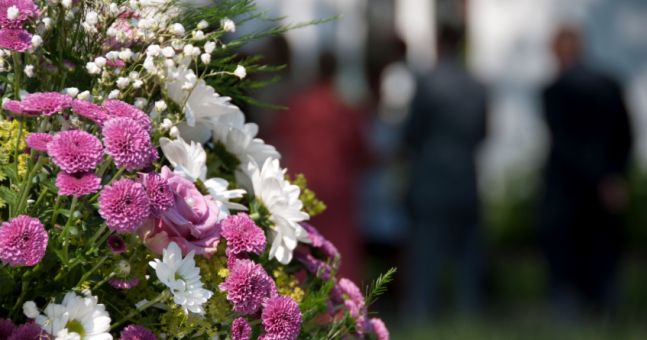
[G]rief is complex.
No one can explain grief to you and no one can tell you how to deal with it. You can speak to counselors, and read approved leaflets on dealing with losing someone and even they cannot tell you how the grief process will work.
So a newspaper certainly has no right to do so.
A well-known newspaper publication recently wrote an article about a young girl who went on a night out. If you’re looking for the news there’s a reason you can’t find it.
The young woman’s mother had died by suicide in a story that was covered in depth by the media, aside from that, this young girl is no different to anyone else who loses a parent.
The story detailed what she wore on the night out and tried to highlight that it was ‘just weeks’ after her mother’s death.
The tone of the story seemed to want to illustrate that there is an issue with the fact that she went out with her friends.
This was two months after her mother died.
A young girl went out with her friends two months after her mother passed away and a newspaper highlighted it as a news story.
This brings to light a very real problem in the media and even in the public when it comes to grief.
This is an example of grief shaming. That is, judging someone for the way they deal with losing someone close to them. Judging them for being too happy, or for attending events, or maintaining somewhat of a normal life on the outside.
No one can tell someone how to grieve. Even those who have suffered from grief can’t judge another person for not doing it in the same way.
Just because someone is seen to be enjoying themselves after a death doesn’t mean they are not sad, and even if they are not sad now, that does not mean that they won’t be at another time.
For many people, laughing, smiling and having fun is a coping mechanism. We are told ‘they would want you to be happy’ and ‘they would want you to enjoy yourself’ but are we judged by others for doing that?
During my dad’s wake, family and friends approached me to tell me stories about what a brilliant man he was, some made me cry and some made me laugh, I would be heartbroken if I thought that my laughing would indicate that I didn’t care.
I remember attending a birthday party about six weeks after he died. For me the more time that passed the harder it got, so a party seemed like something I could do to try and feel normal and to forget about it.
I enjoyed myself, I spoke to people I hadn’t seen in ages, and then, someone came up to me and said ‘sorry about your dad, Megan’. There and then I felt guilty for being there. It wasn’t her fault, she was being kind, but I brought it upon myself to feel guilty, which was obviously completely wrong.
However, if I went on the internet the next day and saw the article previously mentioned, I would have felt a million times worse.
I was thirteen, unlike the woman in the story above, I wasn’t old enough to hit the drink or head to a club, but I’m almost certain if it happened now I’d drink a few whiskeys, I don’t see that would mean that I did not miss my dad.
The newspaper headline purposely phrases ‘two months’ as ‘just weeks’ to make it somehow seem worse and more recent. Two months can fly by after death or it can drag on. But that’s not the point.
Even if it was two days, she had every right to do what she wanted to do.
Grief hit me, when my dad died, but only briefly, only the day of the burial, then it all turned into a weird dream and it wouldn’t hit me again for a few weeks. It comes in and out but never fades away completely. Even now, eight years later I have days that are harder than they were those two months after he died.
Should I still be sitting at home?
If we waited for grief to go away before we left the house, we would never step outside the door again.
Complete Article HERE!
